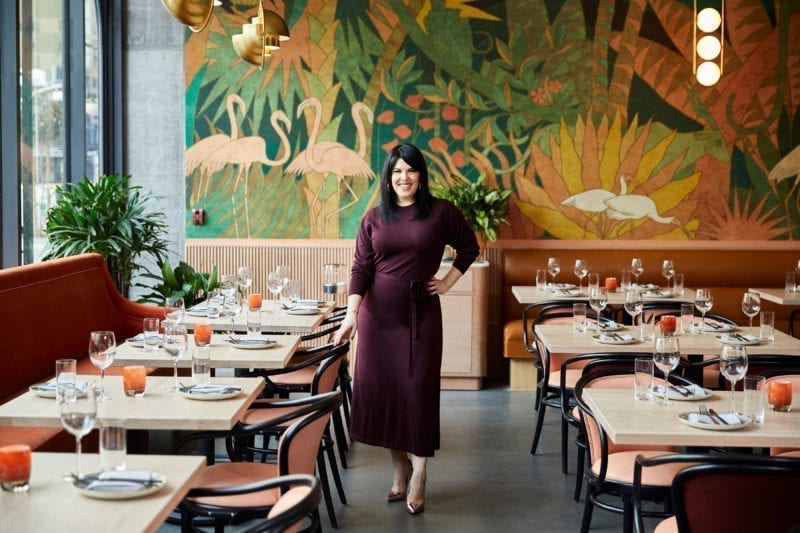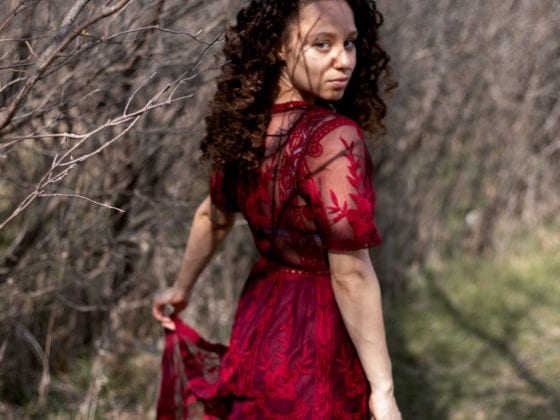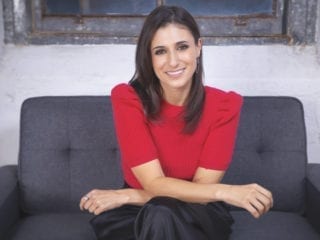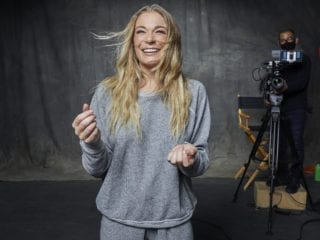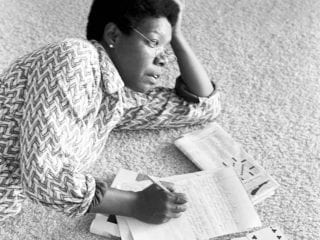“Real Women, Real Work” is a Darling series about everyday women who work in various fields including business, entertainment, science and education. We want to get to know the WHY behind their WHAT and get an inside look into different industries.
Alexis Martin Woodall always knew she was going to be a star. What she didn’t know was that she would own a restaurant in downtown Los Angeles with her husband and chef Dave Woodall while simultaneously being the president of Ryan Murphy Productions.
Darling got a chance to sit down with Woodall to discuss her journey and how she got to where she is now. In this interview, she will share how she balances different hats.
How do you balance being both the president of Ryan Murphy Productions and a restaurateur in L.A.?
Well, I am going to talk a lot about my husband (Dave Woodall) who is the chef of Red Herring. That’s the balance and that’s how it works. This place is not just Dave, and it’s not just me. It’s us.
This is one of the things I think about with women in the workplace. I have a lot of employees, and I have a lot of females in positions of power. There are people who would hire an all-female workforce, but I would not. Extremes don’t do anything other than get like-minded people in the same room. It’s limiting in terms of how the interaction is going to be.
There are people who would hire an all-female workforce, but I would not.
How did you get your first big break?
I moved out here after college. I had a job lined up, but I knew no one. You just have to do it. I drove my first car to L.A., and when I called the job, they had given it to someone else. So, I called P.F. Chang’s China Bistro where I had been a corporate trainer all through college, and I said I needed a job. They hired me in the Pasadena location.
One day, I was leaving PF Chang’s. As I was untying my hideous apron and dressed like an episode of Seinfeld with big, clunky white sneakers, jeans, a white button down and a tie, I noticed I had a message from a co-producer.
He’s said, “I’m producing this show called Nip Tuck. I’m holding your resume, and if you’re still available, we’re looking for a production assistant in post-production.” I just knew that that was my moment.
What was your first job as a production assistant like?
I never made coffee because I didn’t drink coffee. I thought that if I got in the habit of making coffee, they were just going to get used to it. There are boundaries. If I don’t drink it, then I think it’s right for me to not make it. During that time, I also started waiting tables again because we were on hiatus until season three of Nip Tuck started.
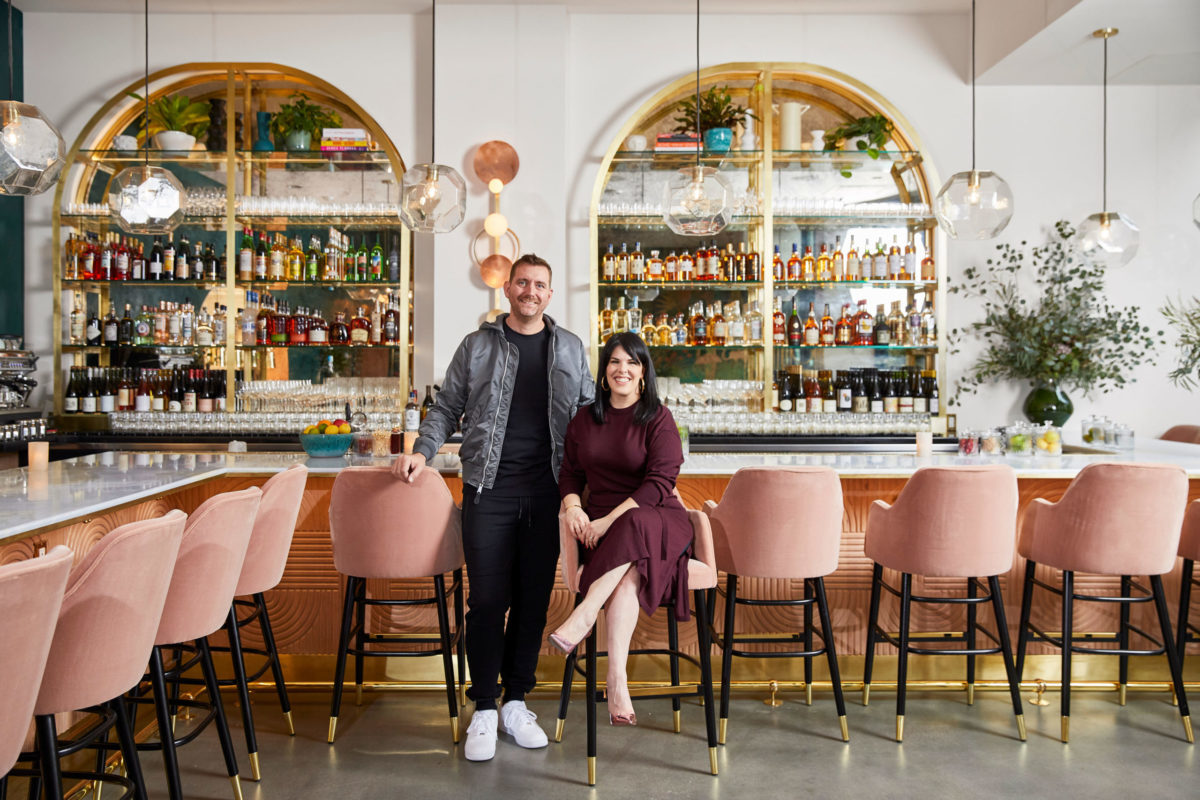
How did your career evolve?
In the off-season, I worked with Ryan as his PA in post-production in Running with Scissors. I would pick up dailies for the movie, take them to post, get his mail, do his calls and get his lunch.
At the end of the three months, he called me into his trailer and said, “I really love working with you. I think we’re a really good fit. I don’t want you to go back to post-production. I want you to stay on and be my assistant.”
I said, “I’m really flattered, and I love this idea. I had the most glamorous time working with you and thank you, but no thank you. I don’t want to be a writer. At the end of a year with you, my skill set will not have increased, but if I go do this ugly, boring, unglamorous and tedious supervisor job for you, I will be able to make your work better.”
He looked at me and said, “I respect that.”
A week later, I got a call from Ryan and he said, “Our associate producer has left to take another job. You are now the new associate producer. I believe in you, sink or swim.”
Your husband worked in numerous notable kitchens for many years. When did you two decide to open your own restaurant?
One day I told him, “Why don’t we put our money where our mouth is? He agreed. At the time I was filming American Horror Story and Glee, and we weren’t making crazy, good money, but I was like, yeah, I think we have to do it. We built it just the two of us with no investors.
How did you start a restaurant with no investors?
That doesn’t mean we’re smart. It just means we’re ballsy, and it means we stand behind what we want to do and understand singular voice.
I learned that from Ryan. He always said, “I am in control, and I will tell you the way I want it done.” It’s specific, and it’s a real clear way to learn. He is the most specific and best leader and mentor I could’ve ever worked with.
Once I asked Ryan, “What happens if you run out of the story? He looked at me and said, “I make more story.” I think about that with everything we’re doing at the restaurant.
What happens if we run out of money? You know what I say? You make more money. With a restaurant, that is not always the answer. It is a very viable conversation. We have to be real about it.
What advice would you give to women looking to make an impact in their industries?
Be bold. Show up for yourself. Take what you want, but do it nicely. The biggest thing is that if you see a void in the work you are doing, start doing it. Do not wait for someone to tell you to do it.
The biggest thing is that if you see a void in the work you are doing, start doing it.
Be an advocate for yourself because no one else is going to bang your own drum, except for you. Just remember that at the end of the day, “If you run out of story, then just make more story.”
Images via Jennifer Chong

